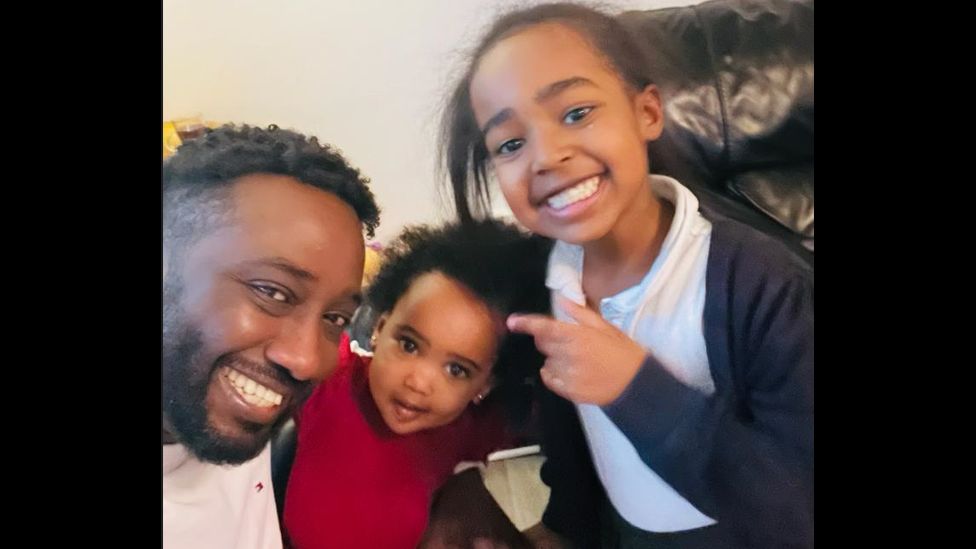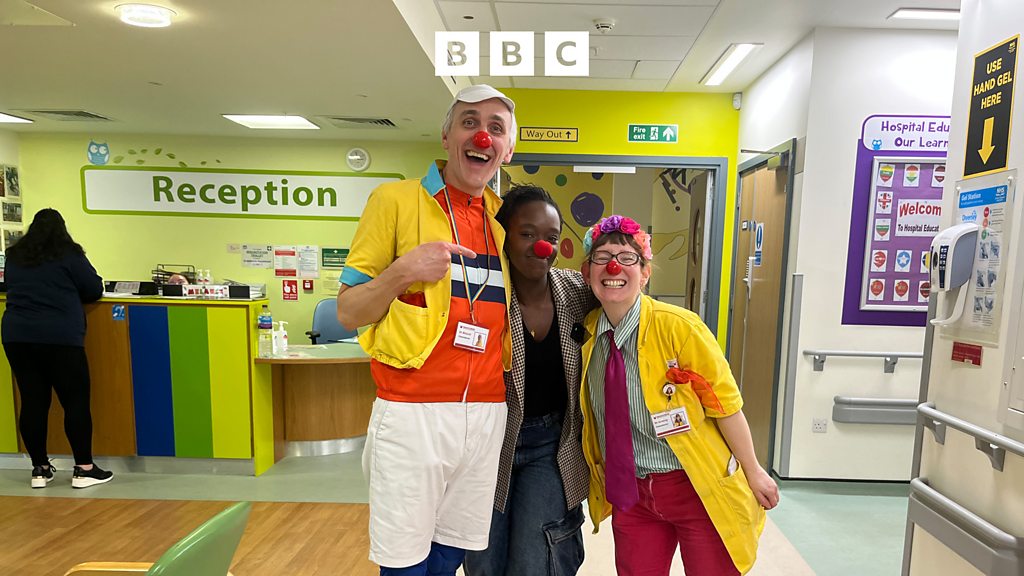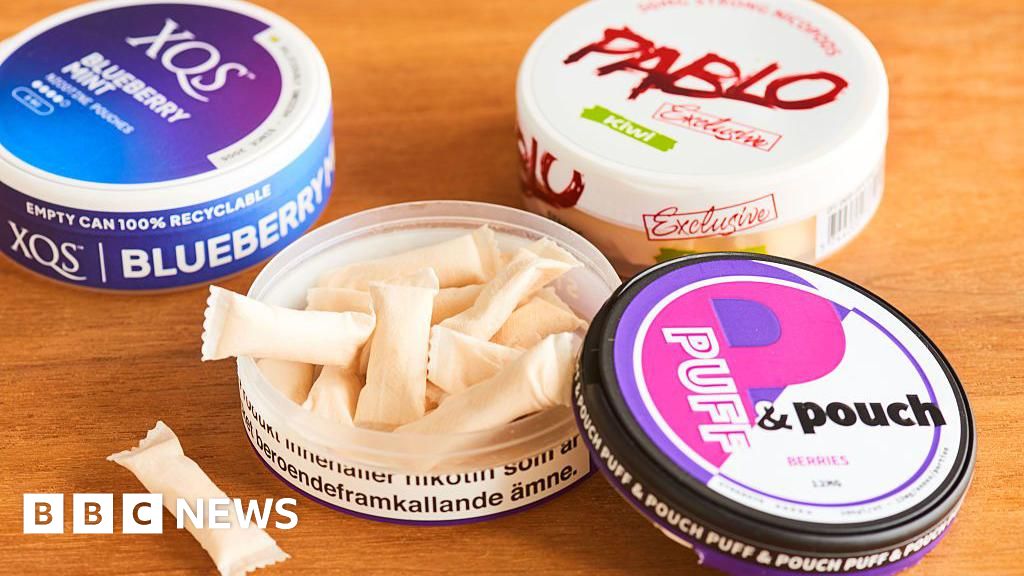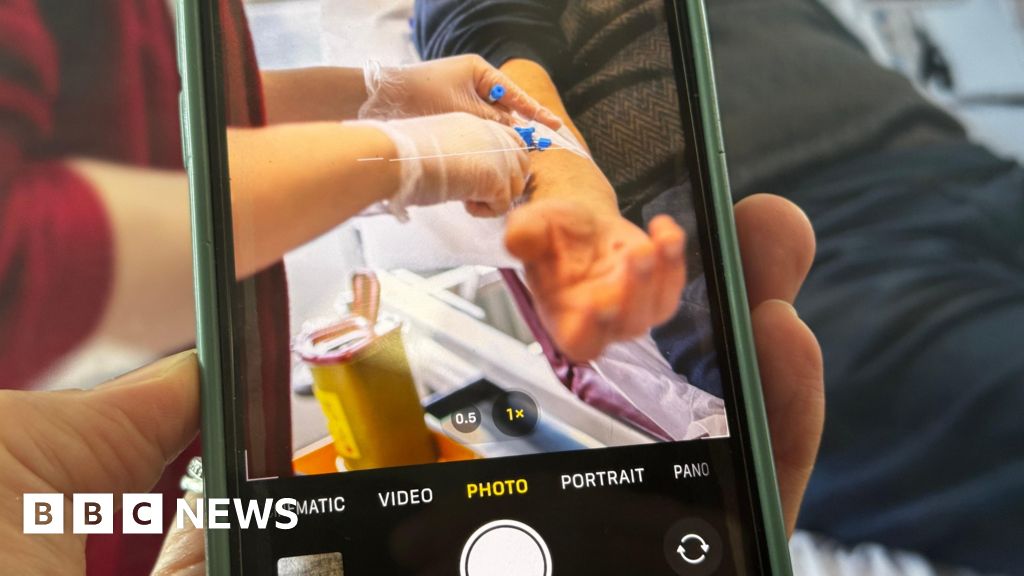ARTICLE AD BOX

Modar Mohammednour with daughters Rana and Reem
By Matthew Hill
BBC West health correspondent
A father whose wife died after childbirth believes she would still be alive if she had given birth elsewhere.
Rana Abdelkarim died at Gloucestershire Royal Hospital in March 2021 after suffering a bleed post-birth.
The Healthcare Safety Investigation Branch (HSIB) found there were delays in calling for specialist help.
Gloucestershire Royal Hospitals NHS Foundation Trust apologised and said steps have been taken to prevent similar tragedies.
Rana Abdelkarim died after suffering a bleed post-birth at Gloucestershire Royal Hospital
Modar Mohammednour, who made a home in Gloucestershire after leaving Sudan with little English, said that in March 2021, his wife attended the maternity unit at 39 weeks into her pregnancy for what she thought was a routine check-up.
Mr Mohammednour, 44, said due to language barriers his wife thought she was going "for a scan and to check on her health" and then "come back home", but in fact she was being sent to be induced.
"Immediately" after the labour, Ms Abdelkarim suffered heavy bleeding and her condition deteriorated - something Mr Mohammednour said he was "unaware of", until he was eventually called into the hospital to speak to a doctor.
The family's solicitor Hannah Carr, from Novum Law, said at this point her husband didn't know she had given birth let alone was in a critical condition.
According to the investigation by the HSIB, the obstetric team of senior doctors were not told about the drastic change in her condition for almost 30 minutes.
'What happened to my wife?'
Mr Mohammednour said: "He [the doctor] just came back and said to me: 'I did the best to save her life but I couldn't'.
"I was feeling - 'I am dreaming'. She was talking to me yesterday. She was so in good health, what happened to my wife?".
An investigation into her death by the HSIB found that once Ms Abdelkarim had been given a drip to speed up labour, regular support from midwives and assessments could not be given to her because the maternity ward was so busy.
It also found there was a 53-minute delay from the point of bleeding to administering the first blood transfusion.
'No effective communication'
The HSIB also found Ms Abdelkarim was "uninformed" about the reason for her admission, "consent to induce labour was not given" and because she was thin and small, staff underestimated how much relative blood volume she was losing.
The HSIB said: "There was no effective communication with Rana and the events that occurred traumatised staff."
Ms Carr said Ms Abdelkarim was at greater risk during childbirth as she had undergone female genital mutilation as a girl.
She said that during the birth of her first daughter, "that was a consideration because Modar", who was present, "was able to advocate for her".
Modar Mohammednour is now bringing up his two daughters alone
Ms Carr said because Mr Mohammednour was absent in the birth of their second daughter and there were poor interpretation services, Ms Abdelkarim and her husband "didn't understand what was happening", which "resulted in a complete breakdown in communication and led, unfortunately in part to her tragic death".
She added: "The Trust's guidelines for massive obstetric haemorrhage and 'Code Red' were not followed.
"The emergency call bell was not activated when staff observed the mother's bleeding which meant that for almost 30 minutes the obstetric emergency was unknown except to the people in the mother's room."
Mr Mohammednour, who is now bringing up his two daughters alone, said six-year-old Reem asks him "all the time about her mum."
"My excuse is just to say to her 'she is in paradise'," he added.
'Serious safety incidents'
Interpretation problems and the handling of heavy bleeds were highlighted in a report by the Care Quality Commission, following an un-announced inspection of the Gloucestershire Royal NHS Foundation Trust in April 2022.
It found a high number of serious safety incidents involving mothers and babies.
The report also said staff could not always identify when a woman's condition was deteriorating, with women like Laura Bowtell losing her baby Margot after staff failed to identify she should have given birth in a consultant-led unit.
The hospital said they had implemented all 10 recommendations made in the HSIB report.
Deputy chief executive of the trust, Professor Mark Pietroni, said the service continues to make improvements "in the interest of patient and staff safety" after the CQC inspection, including one to one care in labour.
He added: "Tragedies such as these are thankfully rare and it is important to stress that our maternity outcomes are in line with comparable maternity units, nationally."
He said it was "vital" for the hospital to "take every opportunity to understand the factors that might have contributed to such a tragic outcome" and to "learn and make care as safe as possible."
Image source, Google
Image caption,Interpretation problems and the handling of heavy bleeds were highlighted in a report by the Care Quality Commission, following an un-announced inspection in April 2022
The latest published maternity safety data from MBRRACE-UK showed in 2020, the year before Ms Abdelkarim died, Gloucestershire was one of just six trusts in the country that had two "red flag" warnings for having stillbirth and newborn death rates more than 5% above the average for similar units.
In one case that year, baby Freddie Whewell had his skull fractured in delivery and his brain was starved of oxygen.
An inquest found his mother, Jay Whewell, was third in the queue for an emergency caesarean and Freddie might have lived had he been delivered sooner.
MBRRACE Lead, Professor Elizabeth Draper, told the BBC, stillbirth and neonatal mortality is a fairly rare outcome- so the numbers are quite low - which means some "natural variation".
'Safest possible service'
Professor Draper said while being identified as red "wouldn't necessarily identify them specifically as a unit that has a particular problem", it is "really important" for those units identified as red to "look at all" the "cases of still birth and neonatal mortality" and "review the care provided for those cases".
Professor Pietroni said a review was carried out after the MBBRACE-UK report and the trust had "identified key themes for learning and intervention".
He said the data for 2021 "shows a marked reduction in stillbirths and neonatal deaths" and they were "absolutely committed to delivering the safest possible service", leaving "no stone unturned" in their efforts, "including exposing" themselves to "external reviews".
Related Internet Links
The BBC is not responsible for the content of external sites.

 2 years ago
122
2 years ago
122








 English (US) ·
English (US) ·